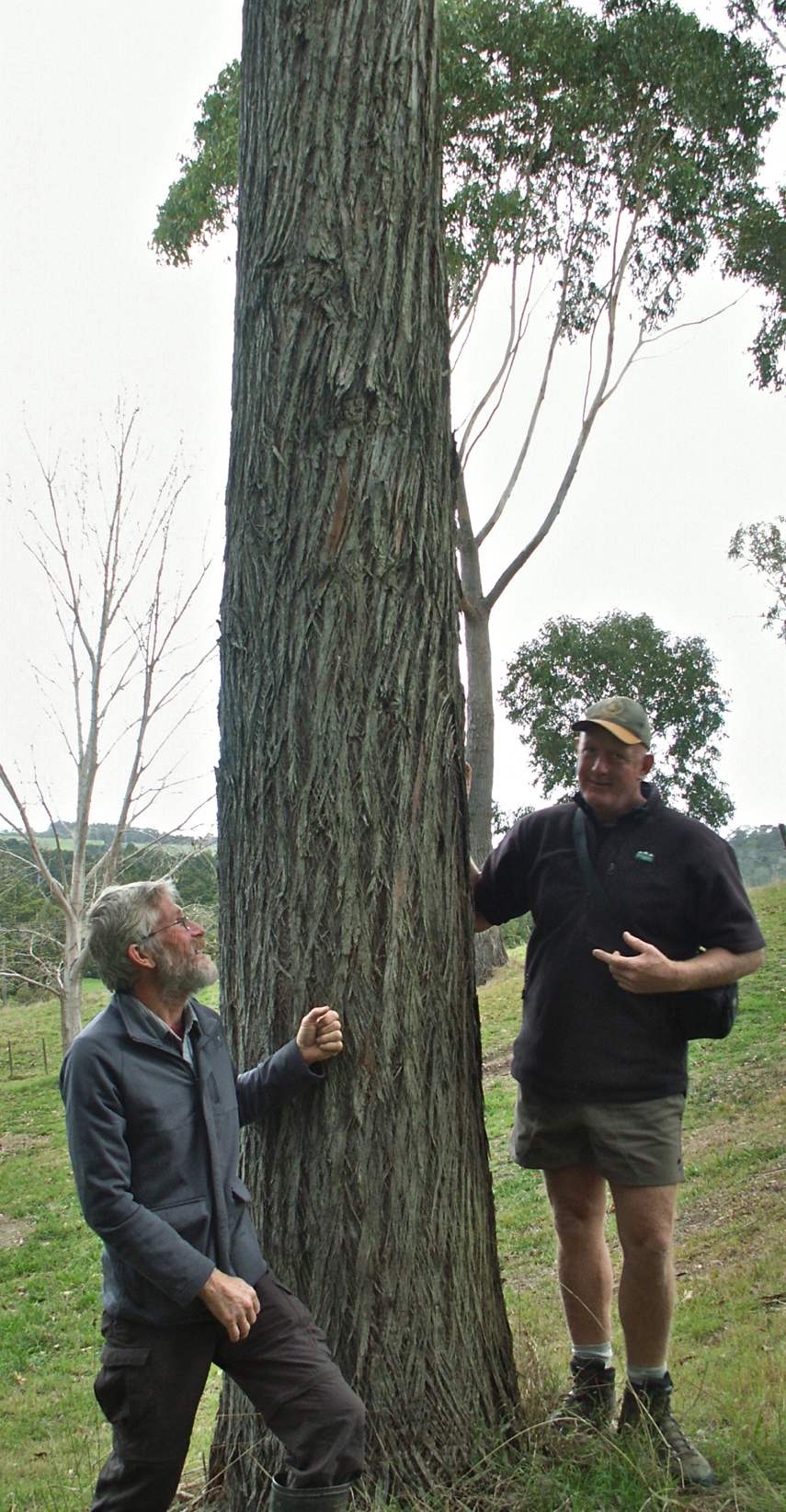Eucalyptus laevopinea for high value hardwood
Sunday, May 25, 2014, Dean Satchell's blog
Eucalyptus laevopinea (silvertop stringybark) is a eucalyptus species that grows really fast and produces a high quality hardwood timber.
It comes from the tablelands of New South Wales and is both cold-hardy and very fast growing. The timber is hard, strong and moderately durable. This makes it suitable for a range of high-value end uses like flooring, outdoor decking and furniture, structural applications requiring good strength and being a decorative stable hardwood could even be used for high-quality furniture.
The tree
E. laevopinea is really quite an amazing tree. It has great form, even better growth rates, is mostly self-pruning and has the best health of any eucalypt I've seen. A good dense crown of leaves means high volumes per hectare and resistence to bugs and possums means good growth rates.
The timber
The timber is pale brown and has a narrow band of sapwood. The sapwood is resistent to lyctus borer, which is an added bonus for internal applications, i.e. no treatment required. The heartwood is moderately durable and thus suitable for outdoor uses such as decking and outdoor furniture. Being a stringybark, the logs are easy to mill with low growth stresses and no shakes. Excellent surface hardness for use as flooring and best of all, fast growth! Good stability means that it doesn't need to be quartersawn and is easy to dry.
Growth rates
I've seen a few stands of E. laevopinea and they were all of similar growth rates to good radiata pine and the ash eucalypts. The ash eucalypts (e.g. E. fastigata and E. regnans) are non durable and soft, therefore not really of much use except for panelling. This one is far more useful but also grows fast, and from what I've seen could be harvested in only 20 years.
Siting
E. laevopinea is growing well as far south as Otago and has shown to be suitable for most New Zealand climates, even colder sites. It grows really well in Northland so is happy with humidity, unlike many eucalypt species.
E. laevopinea is my pick for hardwood timber where extreme durability is not required. Ground durability would be expected to be limited, but I'm yet to be convinced that naturally ground durable timbers hold higher value anyway.

Tim Rose and Angus Gordon admire a 16 year old E. laevopinea in Northland. The diameter at breast height is 61 cm and the tree is pruned to 8m.

The same tree showing a dense crown of leaves. The crown structure is great for an open grown tree. John Pedersen reckons he only pruned "a few branches off" and the tree was otherwise self-pruning.

On the left E. laevopinea and on the right E. quadrangulata. Both trees are 16 years old, open grown and pruned to 8m. The crowns are a similar size but the E. laevopinea has a DBH (OB) of 61 cm while the E. quadrangulata has a DBH (OB) of 39.75 cm. The E. quadrangulata required significantly more pruning but has still grown well and produces a durable timber.
Disclaimer: Personal views expressed in this blog are those of the writers and do not necessarily represent those of the NZ Farm Forestry Association.

6 posts.
Post from Gary Fleming on May 29, 2014 at 9:52PM
Post from Dean Satchell on May 29, 2014 at 10:21PM
Post from Hemon Dey on April 6, 2016 at 10:37PM
Post from Stuart Swanson on August 18, 2016 at 11:16AM
Regards Stu
Post from Shem & Jen Kerr on May 3, 2019 at 9:48AM
Dean, your statement that you're “yet to be convinced that naturally ground durable timbers hold higher value anyway“ appears to differ from that of the NZ forest industry that has allocated the bulk of eucalypt research funding to 3 ground durable species, and none to the faster growing class 3 species in a time when the general public perceive an urgent need for immediate forest increase to deal with the proposed anthropogenic global warming. As I see it, only the head of the ostrich needs to be ground durable.
Post from Nick Sheen on April 25, 2024 at 2:37PM
Hi, thanks for writing about laevopinea. I am looking for a source of seed or seedlings? I'm from Dunedin. Thanks.
Add a post